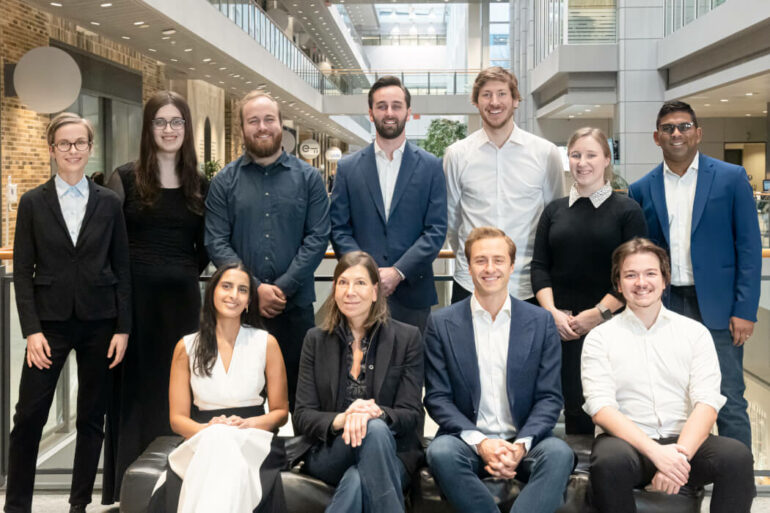Toronto-based Altis Labs, which helps biopharmaceutical companies analyze medical imaging and expedite clinical trials using artificial intelligence (AI), has secured $7.9 million CAD ($6 million USD) in seed funding.
The round was co-led by New York-based Benchstrength, a spinout from General Catalyst, and the Debiopharm Innovation Fund, the strategic investment arm of Swiss biopharma firm Debiopharm. It also saw participation from angels like ex-Verana Health CEO Doug Foster and Dr. Richard Gliklich, founder and CEO of OM1.
Altis CEO Felix Baldauf-Lenschen moved from San Francisco to Toronto to launch Altis because he wanted to work with the city’s “world-class” AI talent and hospitals.
Altis co-founder and CEO Felix Baldauf-Lenschen told BetaKit that he moved from San Francisco to Toronto to launch Altis in 2019 to work with the city’s “world-class” AI talent and hospitals.
“Toronto is home to the world’s best AI research labs and talent that has the skillset to train and deploy deep learning models in production environments,” said Baldauf-Lenschen. “Add Toronto’s world-renowned research hospitals; it makes for a great combination for the work that we do.”
Since then, Baldauf-Lenschen claimed that in collaboration with the University Health Network, Sunnybrook, Hamilton Health Sciences, and the University of Calgary, among others, “Altis has helped create the world’s largest cancer imaging database with associated clinical information.”
Altis’ AI models are focused on lung and colorectal cancers currently. With its seed funding, Altis plans to expand them to different therapeutic and disease areas and types of tumours, including breast, prostate, and liver cancers. The startup also intends to build on its partnerships with biopharma firms and health systems.
For Altis, which has bootstrapped up to this point thanks to early customer traction, this round marks its first external funding to date. Baldauf-Lenschen declined to disclose other financial terms of the round.
According to Altis, though medical imaging represents “the richest source” of clinical data, today it is “vastly underutilized.”
RELATED: BenchSci closes $95 million CAD Series D to expand AI drug-discovery platform
Debiopharm’s head of translational medicine, Dr. Carolina Haefliger, acknowledged the limitations of existing medical imaging analysis processes.
“In R&D, imaging is a core component of what we do in clinical trials, and current methods don’t exploit its full potential,” she said in a statement. Haefliger has joined Altis’s board as an observer.
Altis hopes to change that with Nota, its AI-powered imaging biomarker software platform. With deep learning models trained on over 182 million real-world images with associated diagnostics, treatment information, and outcomes, Nota helps predict outcomes and quantify the effects of various treatments. It is already being used by Bayer Pharmaceuticals, Altis says.
Benchstrength managing partner Kenneth Chenault, who has joined Altis’ board as part of the round, claimed in a statement that Altis has put together “an unparalleled clinical imaging database in terms of both depth and breadth, which they are translating into actionable clinical insight thanks to their AI models.”
RELATED: American biotech Recursion acquires two Canadian AI drug-discovery companies, Cyclica and Valence
Altis is just one of a number of Canadian tech firms using AI to reduce the time it takes to bring new treatments to patients and help pharma firms operate more efficiently. Others include more established players like AbCellera, BenchSci, and Deep Genomics, plus Cyclica and Valence Discovery, which are both set to be acquired by American biotech Recursion.
For her part, Haefliger believes that AI-powered tools like Altis’ platform “will become the new standard for measuring clinical benefit, not just in clinical trials, but also in clinical care.”
“There are many challenges that still need to be solved in health care and clinical research, and our belief is that AI applications will address a number of these issues,” Baldauf-Lenschen said.
UPDATE (06/23/23): This story was updated to include comments and responses from Felix Baldauf-Lenschen.
Feature image courtesy Altis Labs.


